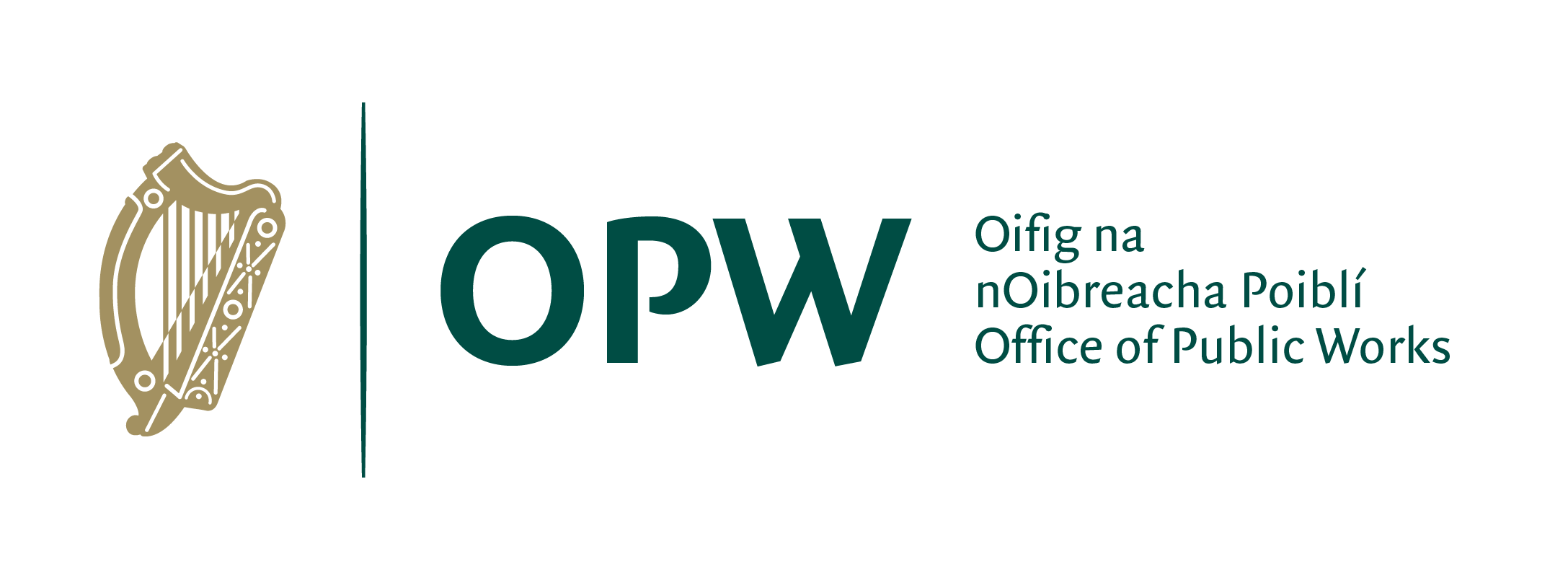Privacy and Cookies
This website is maintained by the Office of Public Works (OPW). OPW fully respects your right to privacy, and will not collect any personal information about you on this website without your clear permission. Any personal information which you volunteer will be treated with the highest standards of security and confidentiality, strictly in accordance with the Data Protection Acts, 1988-2003.
This statement relates to our privacy practices in connection with this website. Some technical terms used in this statement are explained at the end of this page.
Collection and Use of Personal Information
This website does not collect any personal data, apart from information that you volunteer. (For example, when providing feedback or asking a question). Any information you provide in this way is used only for the purpose you provide it.
Information We Routinely Collect
We may collect the following information from each user of this site:
- Statistical information (IP address and hostname, web browser version, pages visited etc.).
- The previous website address from which you reached us, including any search terms used
- Other information submitted in forms, for example if you submit your personal details when requesting a form or providing feedback
What We Use the Information For
Any personal information you provide will be used only for the purpose supplied. We will neither make attempts to identify individual visitors, nor associate the technical details listed above with any individual. It is our policy never to disclose such technical information in respect of individual website visitors to any third party unless obliged to disclose such information by a rule of law. The technical information will be used only by only for statistical and other administrative purposes.
You should note that technical details, which we cannot associate with any identifiable individual, do not constitute ‘personal data’ for the purposes of the Data Protection Acts, 1988 – 2003.
Cookies
Cookies are small pieces of information, stored in simple text files, placed on your computer by a website. Some cookies can be read by the website on your subsequent visits. The information stored in a cookie may relate to your browsing habits on the webpage, or a unique identification number so that the website can ‘remember’ you on your return visit. Other cookies are deleted when you close your browser and only relate to the working of the website. Generally speaking, cookies do not contain personal information from which you can be identified, unless you have furnished such information to the website.
Cookies in a number of places on this website.
- When you first visit this website, you will see a message informing you about cookies. If you click the ‘Close’ button, a cookie will be set which records your preference.
- This website uses Google Forms. Google may set cookies when you use the form function. You can find Google’s privacy policy here.
- Cookies from Google may also be set when Google Maps are displayed on this website.
- This website uses Mailchimp. You can find Mailchimp’s privacy policy here.
Most browsers allow you to turn off cookies or to customise your settings for cookies. To find out how to do this, see the ‘Help’ menu on your browser. Please note that if you turn off cookies or change your settings, some features of the site may not work correctly.
Further Information or to Make a Request
If you are concerned about how personal data is processed via this website, please do not hesitate to bring such concerns to our attention.
Glossary of Technical Terms Used
Web Browser: the piece of software you use to read web pages. Examples are Microsoft Internet Explorer, Mozilla Firefox and Opera.
IP Address: the identifying details for your computer (or your internet companys computer), expressed in internet protocol code (for example 192.168.72.34). Every computer connected to the web has a unique IP address, although the address may not be the same every time a connection is made.
